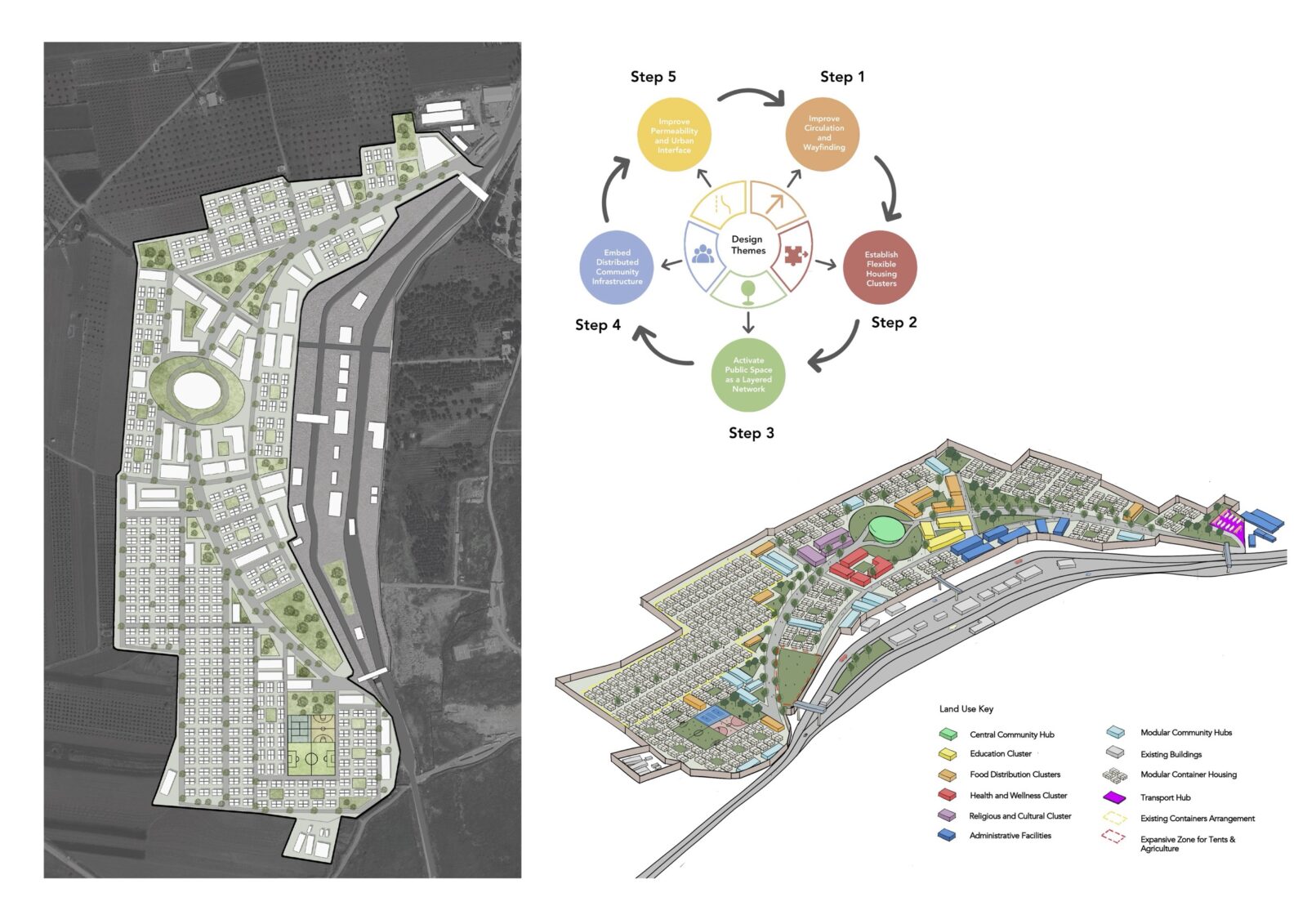Zaki Ul-Hassan MA Urban Design 2025

Designing Better Settlements: Spatial strategies for modular refugee settlements in Kilis, Turkey
This design thesis addresses the challenge of improving liveability within Turkey’s modular refugee settlements, using the Öncüpınar camp in Kilis as a pilot case. Turkey hosts over 3.6 million Syrian refugees, the largest population globally, with many living in rigid container-based settlements that have shifted from temporary shelter to long-term use without necessary spatial upgrades.
The research examines key limitations in current modular approaches, including spatial rigidity, weak integration, and limited public and community infrastructure. Through detailed spatial analysis and precedent case studies in Azraq (Jordan), Berlin MUFs (Germany), and Kalobeyei (Kenya), the project develops a five-step design framework for incremental upgrades to the camp and its accommodation. This strategy proposes improvements to circulation, housing clusters, public spaces, community facilities and the camp’s edge. Each move responds to Öncüpınar’s constraints, with a focus on low-cost, scalable design. Proposals are evaluated using a matrix that tests how well they address the five spatial themes defined in the research.
The project positions spatial design as a practical tool for addressing the overlooked realities of displacement. It shows how modular layouts, often treated as fixed, can be reorganised to improve how people move, gather and access services. Instead of relying on speculative redesign, it works with what already exists. By testing interventions against consistent criteria, the project demonstrates how targeted spatial changes can improve daily life in the settlements. It highlights the role of design in shaping more inclusive and responsive environments within the constraints of humanitarian settlement systems.
